Harnessing the Power of Data Analytics for Small Business Growth
In the digital age, data has become one of the most valuable assets for businesses of all sizes. For small businesses, leveraging data analytics can be a game-changer, enabling them to make informed decisions, optimize operations, and drive growth. Here’s a look at the importance of data analytics in small business growth and how it can be effectively harnessed.
![[object Object]](https://clipl-web1.sgp1.cdn.digitaloceanspaces.com/images/clw7brmcu003i4crzaqo7ekp4.png)
Informed Decision-Making: Data analytics provides small business owners with valuable insights into their operations, customer behaviors, and market trends. By analyzing this data, businesses can make informed decisions that are backed by evidence rather than intuition. This leads to more strategic planning and better outcomes.
Identifying Opportunities: Through data analytics, small businesses can identify new opportunities for growth. Whether it’s uncovering a new target market, recognizing a gap in the product line, or discovering trends that can be capitalized on, data-driven insights help businesses stay ahead of the curve.
Improving Efficiency: Data analytics helps businesses streamline their operations by identifying inefficiencies and areas for improvement. By optimizing processes, reducing waste, and enhancing productivity, small businesses can operate more efficiently and cost-effectively.
Enhancing Customer Experience: Understanding customer behavior is crucial for improving customer satisfaction and loyalty. Data analytics enables businesses to analyze customer feedback, purchase patterns, and preferences, allowing them to tailor their products and services to better meet customer needs.
Risk Management: Data analytics can help small businesses identify potential risks and mitigate them before they become significant issues. By analyzing trends and patterns, businesses can anticipate challenges and develop strategies to address them proactively.
![[object Object]](https://clipl-web1.sgp1.cdn.digitaloceanspaces.com/images/clw7bphbv003c4crz41ge3ejw.png)
Collect Relevant Data: The first step in harnessing the power of data analytics is to collect relevant data. This can include customer data, sales data, website analytics, social media metrics, and more. Using tools like CRM systems, Google Analytics, and social media insights can help gather valuable data.
Invest in the Right Tools: Small businesses should invest in data analytics tools that are appropriate for their needs and budget. There are numerous tools available, ranging from basic solutions like Excel to more advanced platforms like Tableau, Power BI, and Google Data Studio. These tools help visualize and analyze data effectively.
Analyze and Interpret Data: Once the data is collected, it’s essential to analyze and interpret it correctly. This involves looking for patterns, trends, and correlations that can provide actionable insights. Businesses should focus on key performance indicators (KPIs) that align with their goals and objectives.
Leverage Predictive Analytics: Predictive analytics uses historical data to forecast future trends and behaviors. Small businesses can use predictive analytics to anticipate customer needs, forecast sales, and plan for future growth. This proactive approach helps in making strategic decisions that are future-oriented.
Implement Data-Driven Strategies: The insights gained from data analytics should be used to implement data-driven strategies. Whether it’s refining marketing campaigns, optimizing inventory management, or improving customer service, these strategies should be continuously monitored and adjusted based on data insights.
![[object Object]](https://clipl-web1.sgp1.cdn.digitaloceanspaces.com/images/clw7br1ug003e4crz8w6ygj2t.png)
Retail Businesses: Retailers can use data analytics to optimize inventory levels, analyze sales patterns, and personalize marketing campaigns. By understanding customer preferences and buying behaviors, they can stock the right products and offer personalized promotions, leading to increased sales and customer loyalty.
Service-Based Companies: Service providers can leverage data analytics to enhance service delivery, improve customer satisfaction, and manage resources effectively. For example, analyzing customer feedback and service usage patterns can help in tailoring services to meet customer expectations better.
E-commerce Businesses: E-commerce companies can use data analytics to track website traffic, analyze conversion rates, and understand customer journeys. This helps in optimizing the online shopping experience, reducing cart abandonment rates, and increasing sales.
Conclusion
Data analytics is a powerful tool that can drive significant growth for small businesses. By making informed decisions, identifying opportunities, improving efficiency, enhancing customer experiences, and managing risks, small businesses can leverage data analytics to achieve their growth objectives.
At CloudActive Labs India Pvt Ltd, we specialize in helping small businesses harness the power of data analytics. Contact us at [email protected] or call us at +91 987 133 9998 to learn more about how we can support your data-driven growth strategy.
























